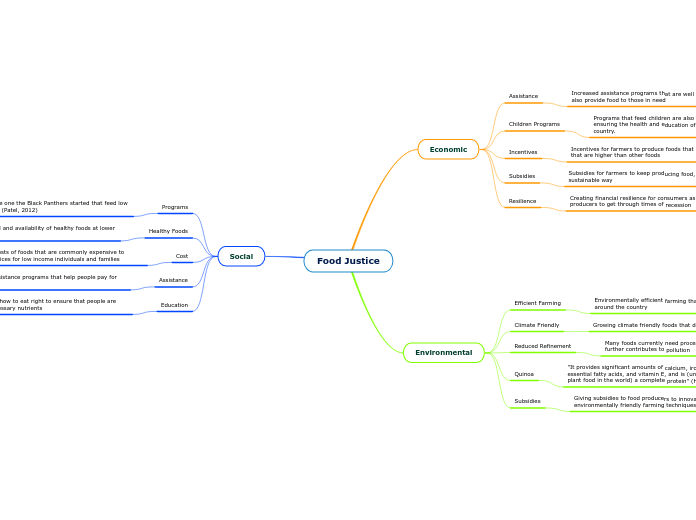Food Justice
Economic
Assistance
Increased assistance programs that are well regulated, but also provide food to those in need
Children Programs
Programs that feed children are also economically beneficial by ensuring the health and education of the future workers in the country.
Incentives
Incentives for farmers to produce foods that provide nutrients that are higher than other foods
Subsidies
Subsidies for farmers to keep producing food, but do so in a sustainable way
Resilience
Creating financial resilience for consumers as well as food producers to get through times of recession
Environmental
Efficient Farming
Environmentally efficient farming that provides food to millions around the country
Climate Friendly
Growing climate friendly foods that do not need to be inported
Reduced Refinement
Many foods currently need processing and refinement that further contributes to pollution
Quinoa
"It provides significant amounts of calcium, iron, fiber, essential fatty acids, and vitamin E, and is (unlike any other plant food in the world) a complete protein" (Hamilton, 2013)
Subsidies
Giving subsidies to food producers to innovate towards new environmentally friendly farming techniques
Social
Programs
Programs like the one the Black Panthers started that feed low income children. (Patel, 2012)
Healthy Foods
Increasing the appeal and availability of healthy foods at lower costs (Khoury, 2020)
Cost
Lowering costs of foods that are commonly expensive to provide choices for low income individuals and families
Assistance
Governmental assistance programs that help people pay for food
Education
Education about how to eat right to ensure that people are receiving all necessary nutrients
